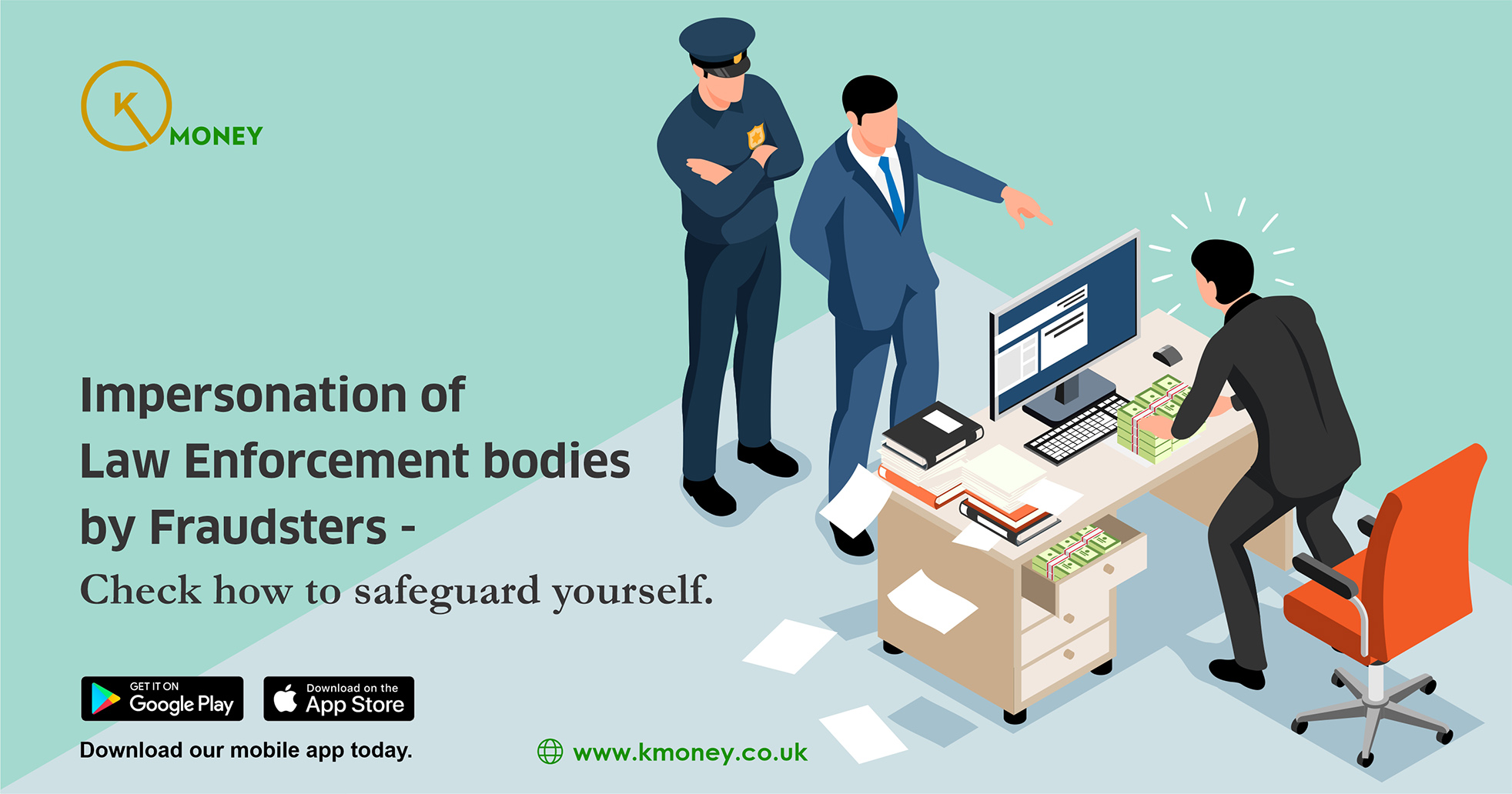
Impersonation of Law Enforcement bodies by Fraudsters - How Can I Safeguard Myself?
Have you ever received a strange, emergent phone call where the person on the other side pretends to be a police officer, a tax agency official or another accusing you of a crime or financial wrongdoing? These are the doings of scammers. Scammers frequently impersonate legitimate authorities to pressure victims into parting with their hard-earned money. Let us understand how these frauds are carried out, particularly the ones involving money transfer to Nigeria and guide you on safety.
How Are these Law Enforcement Impersonation Frauds Carried Out?
Fraudsters have various methods to deceive their targets. Listed below are some of the common approaches:
1. Intimidation of the victims
Intimidation of the victim is key for making them succumb to the needs of the scammers. The fraudsters might threaten arrest, deportation, or other legal actions against alleged crimes like money laundering, tax evasion or other activity.
2. Creating a sense of urgency
The fraudsters tried to create a sense of urgency to increase their victim's panic. The former can then easily pressurise the latter into acting immediately without giving them time to verify. For example, they may ask for an immediate payment to avoid arrest.
3. Use Unusual Money transfer methods
Asking for payments via unusual money transfer methods is a major red flag. Fraudsters may demand payment via gift cards or money transfer services, particularly those dedicated to Nigeria and other foreign countries. They may exploit Nigerians living in the UK who need to remit to Nigeria.
4. Spoofing
Spoofing refers to the manipulation of a caller ID to display legitimate-looking phone numbers or logos from government agencies. To avoid this scam, users must verify the information independently, regardless of the caller ID.
Here are some examples of scams involving money transfer to Nigeria:
● The Lottery Scam
In this scam, the fraudster calls and informs the victims that they have won a lottery but need to pay a processing fee or tax to claim the prize.
● “Help a Friend in Trouble” Scam
In this case, the fraudster might pretend to be a police officer asking for money to release a friend or a relative pending arrest.
● The Tax Scam
In this case, you might receive a call from Fraudsters in Nigeria or other countries claiming payment of unpaid taxes or owed debts to the government. The fraudsters will ask you to send money to Nigeria from the UK or your country of residence and settle the debts.
How to Stay Safe Against these Frauds?
Follow these steps to ensure your safety from such scams:
1. Verification Before Payment:
Never make a hasty payment based on a single phone call. Take time to verify the situation and the caller's details. Keep in mind that legitimate authorities will never ask you for immediate payment.
2. Be aware of unfamiliar payment methods
Legitimate authorities will never ask for payments via unfamiliar or virtually untraceable payment methods like gift cards or money transfers.
3. Keep your personal information private
Never disclose your personal information like bank account details or Social Security numbers. on a phone call without proper verification.
4. Report suspicious calls
Make sure to report any suspicious phone calls you receive so that the number might get blocked and will not be used further to scam others.
Takeaway
By following these tips, educating yourself and staying vigilant, you can protect yourself from falling victim to such law enforcement impersonation frauds. Scammers lurk at every corner trying to take your hard-earned money from you. Always be cautious and trust your instincts to make safe money transfers to Nigeria.
"Safeguard against impersonation scams when sending money from the UK to Nigeria with K money transfers. Verify identities, use secure payment channels, and stay vigilant against fraudulent activities to protect your financial transactions."